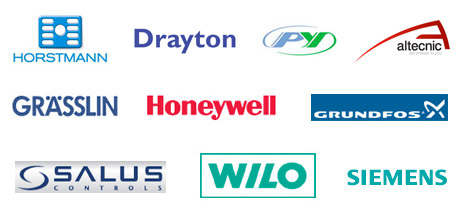Services
Power Flushing London
London’s highest rated plumbing & Heating Engineers
Licensed & INsured
All our engineers work directly for us. They are both licensed and insured professionals
Plumbing & Heating Pros
20+ Years of experience 5 star rated across Google

Best Value for Money
Exceptional service and competitively priced with Platinum quality as standard
"TRUE PROFESSIONAL SERVICE"
“Platinum really will give you great work for a fair price. Highly recommend”
"EFFICIENT AND KNOWLEDGABLE"
“James was great and super friendly. Efficient and knowledgable. Worth the rate”
"EASY TO COMMUNICATE"
“Highly recommended. Easy to communicate with, efficient, stuck to the quoted price”
10% OFF
10% Off Throughout 2020 from Your First Site Visit.
Not Sure if You Need A Power Flush Or Do You Just Need A Second Opinon? Hire London’s Trusted Plumbing & Heating Experts.
(1) Just mention the discount code Power Flushing London/2020 whilst booking an engineer. Click learn more below.
(2) Only available to residents and business within North London or East London.
(3) *Discount codes only apply to the following requested trades: Heating Engineers. Discount available for site visit/inspection only! Does not cover any subsequent site visits for power flushing.
Services
Power flushing London services
Power flushing London
What is power flushing
Power flushing is a procedure used by central heating engineers to clean a central heating system. Heating engineers use chemicals forced around a central heating system with a specially designed machine that uses high-flow and reverse flow to remove magnetite (sludge). This helps restore a poorly working or complete blocked heating system.
If you already know the above and below information click learn more for our up to date power flushing price guide and how to book a heating engineer for a site visit.
Why do central heating systems need power flushing
Central Heating Systems
Other Services
Gas Piping & Repairs
blocked drains
Renovations
Ways to clean
Power flushing vs Magnacleanse
How can a power flush help me and my heating system
Removal of built-up magnetite and sludge.
Full chemical treatment on the heating system means instant protection.
Up to a 15% energy saving, which means cheaper fuel bills.
Your home will heat up faster. Faster convection throughout your homes heating system also means you get a warmer home.
Seriously reduces the chances of boiler breakdowns and replacement of parts costs associated with boiler and central heating breakdowns.
Prolongs the life of your boiler.
Ensures your boiler manufacturer warranty remains valid. Some boilers come with 10 - 15 years parts and labour warranty. Not servicing your boiler annually or ensuring the heating system is well maintained will void all manufactures parts and labour warranties!
The Benefits of a power flush
The Need For a Professional
Why you should always have an expert carry out a power flush
How do tell if your heating system needs to be power flushed
identify problems
FAQS
OLD WIVES TALES
| Property Type | Number Of Radiators | Cost | Time Needed |
| 1 Bedroom Apartment | 4 | £400 | 1/2 Day |
| 2 Bedroom Apartment | 5 - 6 | £450 - £500 | 1/2 Day |
| 3 Bedroom Apartment | 7 | £550 | 1 Day |
| 3 Bedroom House | 9 | £650 | 1 Day |
| 4 Bedroom House | 12 | £800 | 1.5 Days |
| 5 Bedroom House | 15 | £950 | 2 Days |
| 6 Bedroom House | 18 | £1100 | 2.5 Days |
10% Off First Time Visits
For residents and business who live and work within North London or East London
Your No 1 Plumbing Specialist
Consistently rated five stars by our clients for our communication and level services we provide.
Free Instant Estimates
We do our best to provide clients with the closest estimates as possible based on thousands of previous jobs on a like for like basis. *Some request may require a home visit, there may be a charge for this.
Visit Us
Platinum Emergency Services Ltd 6 Salop Road, Walthamstow, London E17 7HT
Email us
sales@platinumemergency.com
Get An Estimate
Request An Engineer
Our Top Trades
Follow Us
Platinum Emergency Services Ltd
6 Salop Road
Walthamstow
London
E17 7HT









